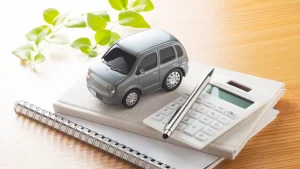Be Aware of Your Spending
Suzy has a good job. She makes a decent wage, she lives in an affordable apartment, she doesn’t eat out all the time or blow money on stupid things. She tries to make a budget and stick to it as well as she can. Yet at the end of every month Suzy is in desperate need of her next paycheck. She isn’t sure why.
Sound familiar? A lot of us are like Suzy. We try to watch our spending and be financially responsible, yet the end of the money always seems to come before the end of the month. We wish we could change this, but we don’t know where to start.
It doesn’t have to be hard. Most often, people are facing a problem like this because they have lost track of where their money is going. They know where the big chunks of their income go; rent, car, food, etc. but it is the smaller expenditures that add up and cause the problems.
An excellent way to get a handle on this is to keep a spending journal. For one month, carry a small notebook with you wherever you go. Every time you spend any money on anything, write it down. Not how much you spent and what you spent it on. At the end of the month analyze what you have spent and see what patterns emerge and can be corrected.
What is an example of the types of patterns that we might find in our spending? To answer that, lets look at Suzy. She isn’t a morning person. Every morning on her way to work she stops by the corner coffee shop and grabs a large coffee. She used to go to one of the fancy places, but she knew that the lattes were too expensive, so she goes here now. On Sundays she heads to the same shop, gets a large coffee and sits own to read the thick weekend paper. By keeping a spending journal she realizes that the coffee, even though it is relatively inexpensive, is slowly making her broke. The coffee costs £3 a cup for a large. That seems reasonable, but she goes for coffee 6 or 7 days a week, every week. If she goes 25 days in a month, then she is spending £75 each month on coffee. She doesn’t think anything of grabbing coffee, but it costs her more than any of her regular monthly utility bills do. By buying a coffee machine and coffee beans and making coffee at home she is able to save money every month which she can spend on something more fun.
There are lots of money traps like the one Suzy noticed. Buying a soda at lunch every day, buying your lunch or paying for expensive parking when cheaper parking is just a block or two further away are just a few examples. Once you track your expenses you can find your own money traps and fix them. Like Suzy, you will be surprised how easy it is and how much money you will save.


